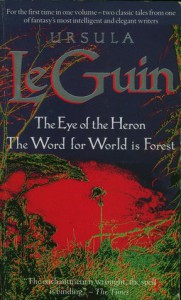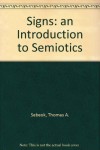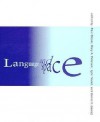Qwallath
Hi, I'm Odile, a historical linguist from the Netherlands who also likes to write about music, games, and history. Check out my longer blog posts and other writings on Sub Specie.
On 'The Eye of the Heron'

The Eye of the Heron is an engaging novella about oppression and resistance in a new world. The planet Victoria has been minimally settled by outcasts from Earth. A group of criminals, now dwellers of the new planet's only city, were the first to arrive. Two generations later, two thousand farmers were exiled from Earth, and they became the second group of settlers, who live in the village of Shantih, a few miles from the city.
Over the course of the story, the city-dwellers attempt to establish a stronger form of dominion over the farmers, in order to have them function as exploitable labourers, and to curtail the sense of independence that the farmers have.
The farmers in turn try to adhere to a strict code of non-violence and non-violent resistance. They want to establish a new colony away from the city and Shantih, where they live.
This attempt at greater independence does not sit well with the government of the city, and they try to impose their order and dominance. The farmers, in the mean time, have to put their principles into practice, and they resist the demands of the government, led by the charismatic Lev.
Most of the novella is taken up by this escalating conflict, in which major roles are played by the aforementioned Lev, and by Luz, the daughter of the city's ruler, who eventually chooses to live with the villagers.
The convictions of both groups of people are put to the test, and the conflict culminates in a standoff where Lev and sixteen others are killed by city militia. On the other side, enraged by Lev's death, the villagers retaliate and numerous city soldiers are killed as well.
In the aftermath of this battle, new treaties are negotiated between the city and the village, bringing slight improvements to the way village labourers are treated, while still denying them the basic of self-determination asserted by people like Lev and Luz.
The novella ends with a small group of villagers, including Luz, setting out for a new colony, against the demands of the city.
Le Guin's depiction of the conflict is very interesting. While she has great sympathy for the rights and plights of the villagers, she does illustrate the difficulties of a radical non-violent resistance. Such an approach demands great sacrifice, and the willingness of individuals in a community to make those sacrifices for their peers. Ultimately, despite a strong assertion of spiritual power, it does not necessarily lead to an improvement of the lot of the people, and may even bring about a total subjugation of destruction. On the other hand, poisoning and burdening one's own community with paid back violence may be a worse option, depending on your spiritual convictions.
The story's ending, a brave group setting out in pursuit of their asserted freedom from oppression, is strong, but it also seems very specific to the setting of the story. Only the pristine natural environment of the planet gives room to such an exodus. They can be reasonably sure that the city-dwellers will not pursue them, because the latter have far from mastered the landscape themselves.
Such a scenario is hard to imagine on Earth today, for example, where the reach of capitalist and imperialist exploitation is long indeed. That said, Le Guin does acknowledge that in the sparse descriptions she gives of the situation on Earth that led to the colonisation of Victoria in the first place. The criminals were sent off because they were undesirables — in itself in interesting sci-fi parallel to e.g. the English establishing a penal colony in Australia. The farmers, too, were undesirables, consisting of two thousand people from a worldwide 'peace march', a non-violent movement spanning all continents that was supposed to lead to a resettlement in the wilderness of 'Canamerica'. The government of that country deceived them, though, sending two thousand away to Victoria, and denying the rest their right of free settlement.
In the end, then, perhaps the novella is trying to say that non-violent resistance to oppression is honourable and morally right. However, you need a Victoria, an unspoilt wilderness, to be to truly free. Other human groups are seldom enlightened enough to tolerate the freedom you assert.




